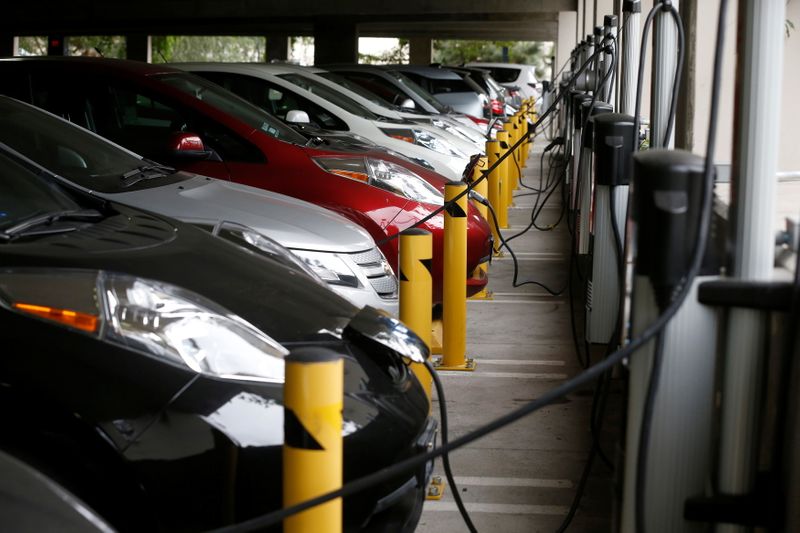(Reuters) - The California Energy Commission (CEC) has approved a three-year $1.4 billion plan to help California achieve its electric vehicle charging and hydrogen refueling goals.
The CEC said the plan, approved on Monday, will support California Governor Gavin Newsom’s executive order phasing out the sale of new gasoline-powered passenger vehicles by 2035.
The 2021–2023 Investment Plan Update increases the budget of the Clean Transportation Program by six times, including $1.1 billion from the 2021–2022 state budget in addition to the remaining $238 million in program funds, the CEC said.
“These dollars close the 2025 infrastructure funding gap so that access to charging and hydrogen fueling isn’t a barrier for those exploring cleaner transportation options," Lead Commissioner for Transportation Patty Monahan said in a statement.
The CEC said the plan focuses on zero-emissions vehicle infrastructure build-out, with nearly 80% of available funding going to charging stations or hydrogen refueling.

The plan includes $314 million for light-duty electric vehicle charging infrastructure, $690 million for medium- and heavy-duty zero-emission vehicle infrastructure (battery-electric and hydrogen) and $244 million for zero-emissions vehicle manufacturing.
On Nov. 19, the California Air Resources Board (CARB) will consider a complementary proposal for $1.5 billion in clean transportation incentives, including consumer vehicle rebates, and heavy-duty and off-road equipment investments, the CEC said.